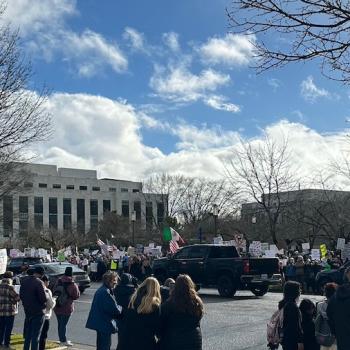For practicing Roman Catholics and evangelicals and many other Christians, marriage is understood to be the fundamental institution of all human society. It was established by God at creation, when God created the first human beings as male and female (Gen. 1:27).
One of the roles of civil government is to recognize, encourage, and endorse good behavior (1 Pet. 2:14). Governmental recognition of same-sex marriage implies a requirement to allow homosexuals to adopt and raise children, which goes against biblical teaching. Additionally, the greater the governmental recognition, the more likely prohibitions against criticizing homosexual conduct will be labeled as a hate crime, a human rights violation, or something else, when in reality curbing what people of faith believe restrains religious freedom on a whole new level.
Abortion
This fall, voters in Montana and Florida will vote on parental notification of abortion by a minor and to prohibit public funding of abortion respectively.
Likewise, voters have two very different options from which to choose for president. One candidate supports access to abortion without restriction (Obama) and another opposes abortion (Romney). President Obama has picked judicial nominees who are believed to uphold the Roe v. Wade decision if it were to be brought before the Supreme Court.
Romney has pledged to appoint Supreme Court justices who would overturn Roe v. Wade. He has also said he would support legislation to protect unborn children capable of feeling pain from abortion. He has pledged to reverse Obama's decision that lifted a ban on federal funding of international family planning clinics that promote abortion.
He called Roe v. Wade "one of the darkest moments in Supreme Court history"—saying the issue should be decided at the state level. He has said he would not advocate for a Constitutional Amendment to ban abortion, but, if Congress passed a bill banning abortion, he said he would sign it.
In conclusion, there could not be two more different candidates running for president of the United States. One is impeding the Constitution's provision for religious freedom in this country, rejecting the biblical definition of marriage, and opposing the preservation of the life of the unborn. The other's views are exactly the opposite.
These candidates represent two very different visions for the future and soul of America and evangelicals have an opportunity to shape that future by the vote they cast on Election Day.




